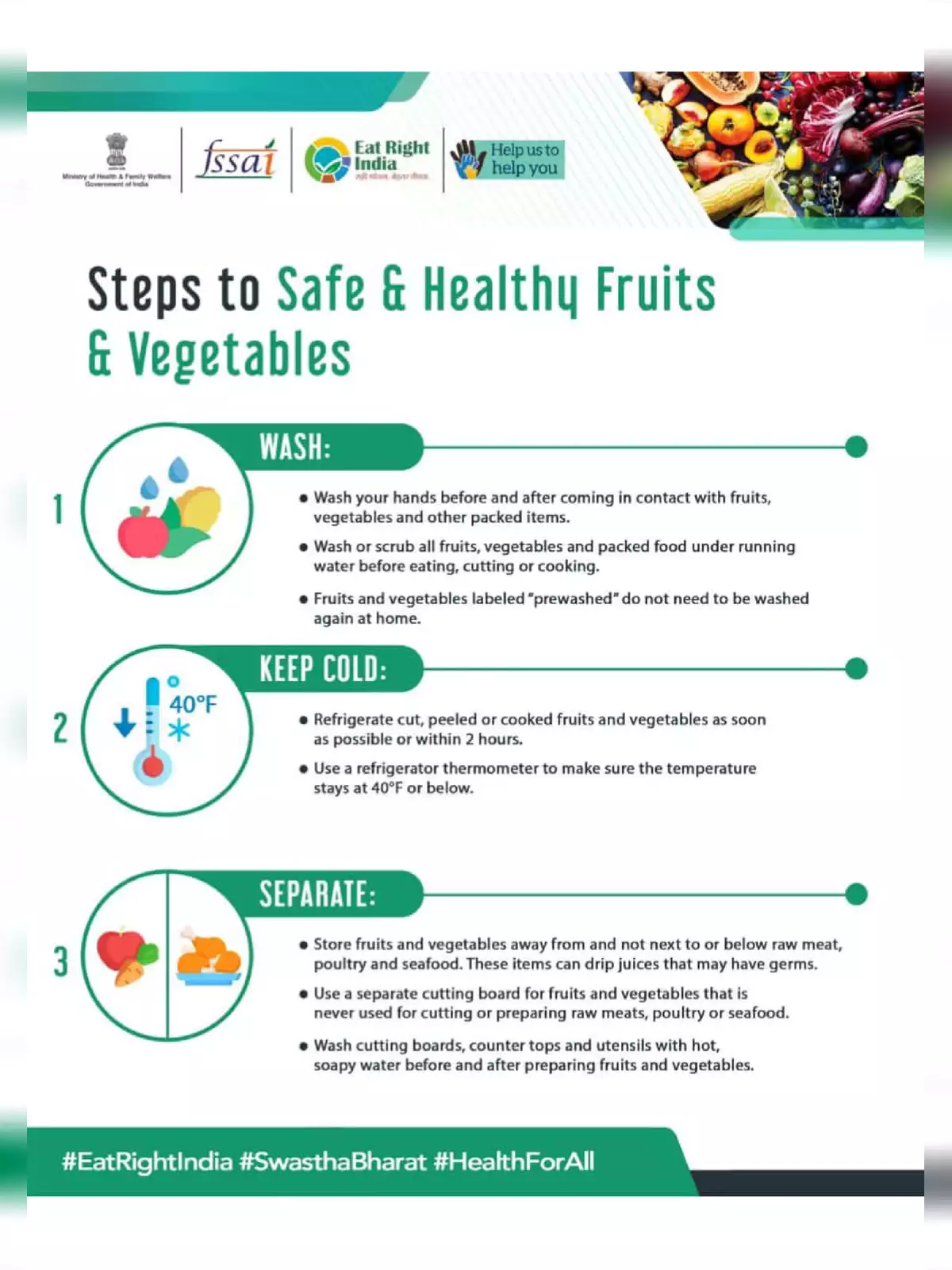FSSAI Fruits and Vegetables Safety Guidelines - Summary
The Food Safety and Standards Authority of India (FSSAI) has established important safety guidelines for fruits and vegetables to ensure the produce we eat is safe and of high quality. These FSSAI fruits and vegetables safety guidelines aim to prevent contamination and promote proper handling and storage, thus enhancing the overall safety of fresh produce.
Importance of FSSAI Guidelines for Fruits and Vegetables
The FSSAI’s fruits and vegetables safety guidelines are vital for helping consumers enjoy nutritious and safe produce. By promoting best practices in farming, handling, and distribution, these guidelines greatly reduce the risk of contamination and support consumer health.
FSSAI Standards for Fruits and Vegetable Products
Steps to Ensure Healthy Fruits & Vegetables
WASH:
- Always wash your hands before and after touching fruits, vegetables, or any packed items.
- Wash or scrub all fruits and vegetables under running water before eating, cutting, or cooking.
- Fruits and vegetables labeled as “prewashed” do not require additional washing at home.
KEEP COLD:
- Refrigerate cut, peeled, or cooked fruits and vegetables immediately, ideally within 2 hours.
- Use a refrigerator thermometer to ensure the temperature stays at 40°F (4°C) or below.
SEPARATE:
- Keep fruits and vegetables separate from raw meat, poultry, and seafood to avoid contamination from juices that may contain harmful germs.
- Always use a different cutting board for fruits and vegetables, avoiding any contact with raw meats, poultry, or seafood.
- Clean cutting boards, countertops, and utensils with hot, soapy water before and after preparing fruits and vegetables.
For more information, you can visit the official FSSAI website.
Don’t forget to download the FSSAI Fruits and Vegetables Safety Guidelines in PDF format from the link below. This will help ensure that the fruits and vegetables you consume are safe and healthy!
